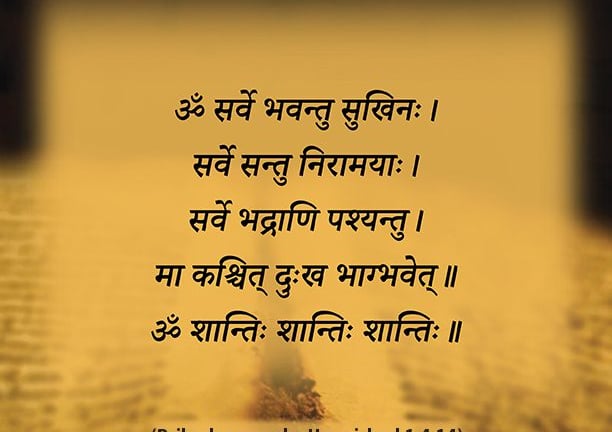Exploring the Meaning of Famous Sanskrit Verses
10/26/20233 min read


In this blog, I attempt to uncover meaning of some of the most influential Sanskrit verses. For those who do not know what Sanskrit is, Sanskrit is an ancient Indo-Aryan language that has played a significant role in the development of many modern languages, particularly in the Indian subcontinent. It is considered one of the oldest languages in the world and is known for its rich literary, philosophical, and religious traditions. It is believed to have originated around 1500 BCE or even earlier. It is associated with the ancient Vedic civilization of India, and it served as the language of religious texts, including the Vedas. Sanskrit is known for its highly structured and organized grammar. It has a well-defined system of rules for word formation, sentence structure, and pronunciation. This precision and structure have contributed to its longevity.
Sarve bhavantu sukhinaḥ, Sarve santu nirāmayāḥ. Sarve bhadrāṇi paśyantu, Mā kaścid duḥkhabhāgbhavet - May all beings be happy, May all beings be free from diseases. May all see auspiciousness, May no one suffer.
This shloka emphasizes the well-being, happiness, and good health of all living beings and wishes for a world where no one experiences suffering. It embodies the spirit of compassion and universal goodwill.
Asato mā sadgamaya. Tamaso mā jyotirgamaya. Mṛtyormā'mṛtaṁ gamaya - Lead us from the unreal to the real. Lead us from darkness to light. Lead us from mortality to immortality.
This shloka is a part of the Brihadaranyaka Upanishad and is often recited as a prayer, invoking divine guidance and seeking a path from ignorance and mortality to truth, knowledge, and immortality.
karmaṇy-evādhikāraste mā phaleṣhu kadāchana mā karma-phala-hetur bhūr mā te saṅgo 'stvakarmaṇi - You have a right to perform your prescribed duties, but you are not entitled to the fruits of your actions. Never consider yourself the cause of the results of your activities, and never refrain from fulfilling your duties.
This shloka is from Chapter 2, Verse 47 of the Bhagavad Gita, where Lord Krishna imparts the wisdom of detached action to Arjuna. It emphasizes the importance of performing one's duties selflessly, without attachment to the outcomes, and it has profound philosophical and ethical implications.
na jāyate mriyate vā vipaśhchin nāyaṁ kutaśhchin na babhūva kaśhchit ajo nityaḥ śhāśhvato ’yaṁ purāṇo na hanyate hanyamāne śharīre - For the soul, there is neither birth nor death at any time. He has not come into being, does not come into being, and will not come into being. He is unborn, eternal, ever-existing, and primeval. He is not slain when the body is slain
This shloka is from Chapter 2, Verse 20 of the Bhagavad Gita. It conveys the timeless and eternal nature of the soul, which is not subject to birth or death.








